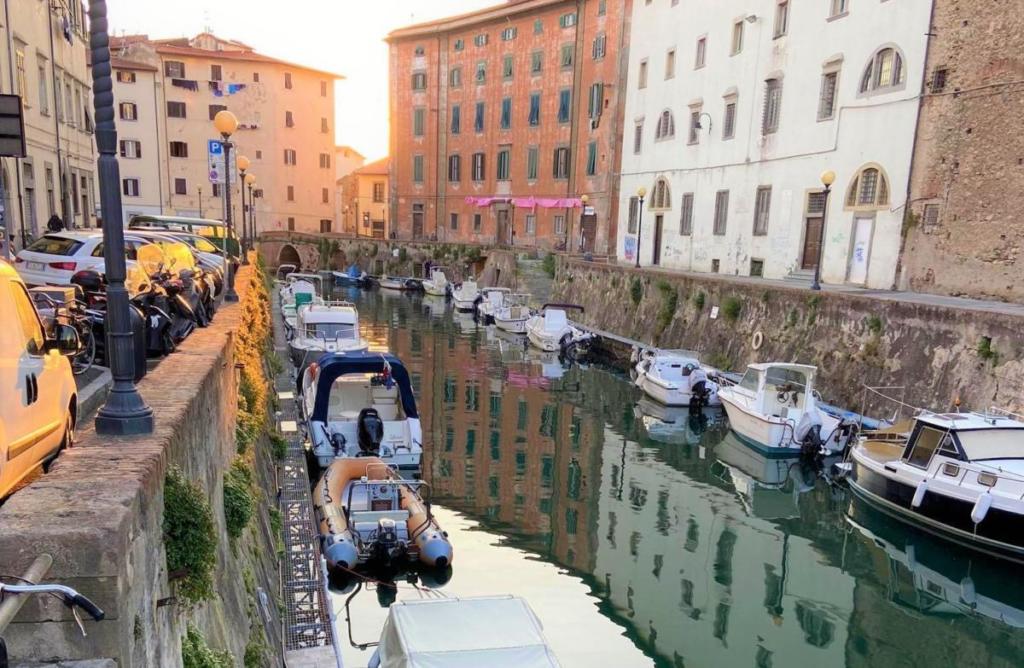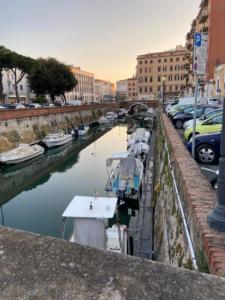"To all of you Merchants of any nation, from the Levant, Ponentini (from the west), Spaniards, Portuguese, Greeks, Germans, Italians, Jews, Turks, Moors, Armenians, Persians, and others, we grant real, free and very wide safe conduct and free permission and license that you can come stay, trade, pass, live with families, and without leaving, return and negotiate in the city of Pisa and the land of Livorno. "
So in 1593 Ferdinando I de Medici invited anyone to come to Livorno. Until then it was nothing more than a place with a port that had also been a refuge for those Sephardic Jews expelled from Spain.
A few years later, in the early 1600s, Livorno was elected a real city. A city that had among its inhabitants people of many nations and many religions.
Each had his own trade and was free to follow his own religion, in fact in Livorno there were Anglican and Greek Orthodox churches, mosques and synagogues, some still existing today.
The trade that developed immediately becoming flourishing and the Jews, who unlike in other cities or nations, in Livorno never had the obligation or the need to have a ghetto, formed together with the city. And it is still so today.
The Jews also adopted a language of their own in order to exchange information without being understood: this language is the Bagitto made up of Greek, Turkish, Italian, Tuscan, Venetian, Hebrew, Spanish, Portuguese and Yiddish, and was in use until 1950.
Bagitto has given many words to the Livorno vernacular, such as ‘ti sciagatto’ which derives from the Hebrew "sciahàt" which means slaughter. So 'I am upset' in Livornese means I beat you enough to slaughter you.
Everyone in Livorno had their space: their faith, their court and everyone traded. The city needed to expand and the Pentagon built by the Medici architect Bernardo Buontalenti between the mid-1500s and 1600s began to be cramped.
The Pentagon was enclosed by high walls, by turrets and was surrounded by moats, hence the name in use by the Livornese "Fossi" and not canals. The pentagon was the original wall system that protected the city and the name derives from its shape: five sides and five bulwarks at each vertex that made Livorno a fortified citadel.
 The Fossi were expanded as the city that grew more and more. They were used as a means for the transport of goods which, when they arrived at the port, were unloaded and transported along them directly to the warehouses, created right beside the moats, with direct access under the palaces of the various merchants.
The Fossi were expanded as the city that grew more and more. They were used as a means for the transport of goods which, when they arrived at the port, were unloaded and transported along them directly to the warehouses, created right beside the moats, with direct access under the palaces of the various merchants.The growth of the town and market required land and the area was marshy and difficult to build on. But ingenuity has never been lacking in Livorno and the Livornese.
They called workers from Venice and built on those swampy lands with the technique of the Venetian masters, on stilts, thus creating the "New Venice", a neighbourhood entirely surrounded by moats.
About Livorno for a Livornese there would be a lot to say, especially of its sea.
The sea of Livorno is for us something physical, personal, intimate.
You can depart from Livorno but you must always return, for to us from Livorno it is necessary, almost vital.







Follow us